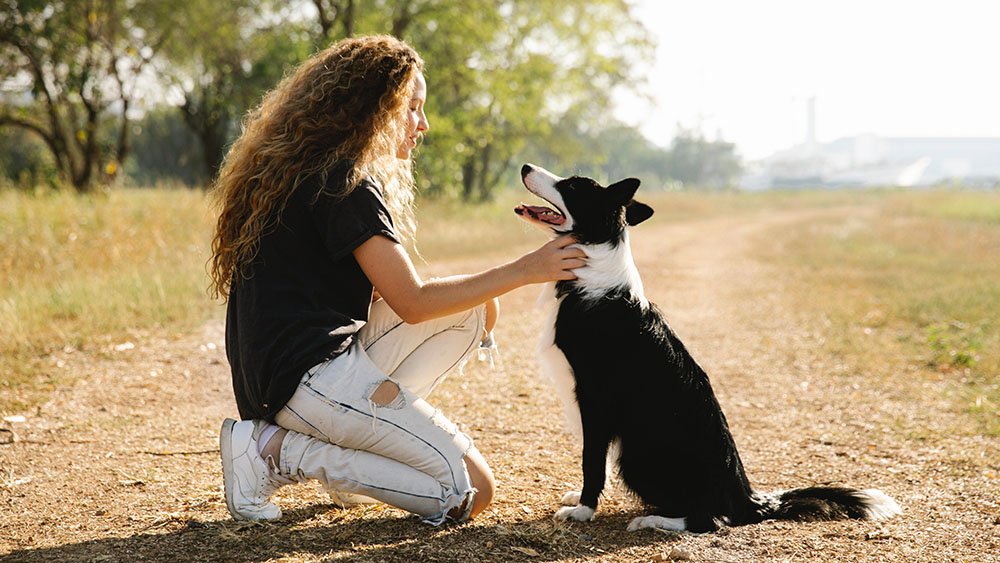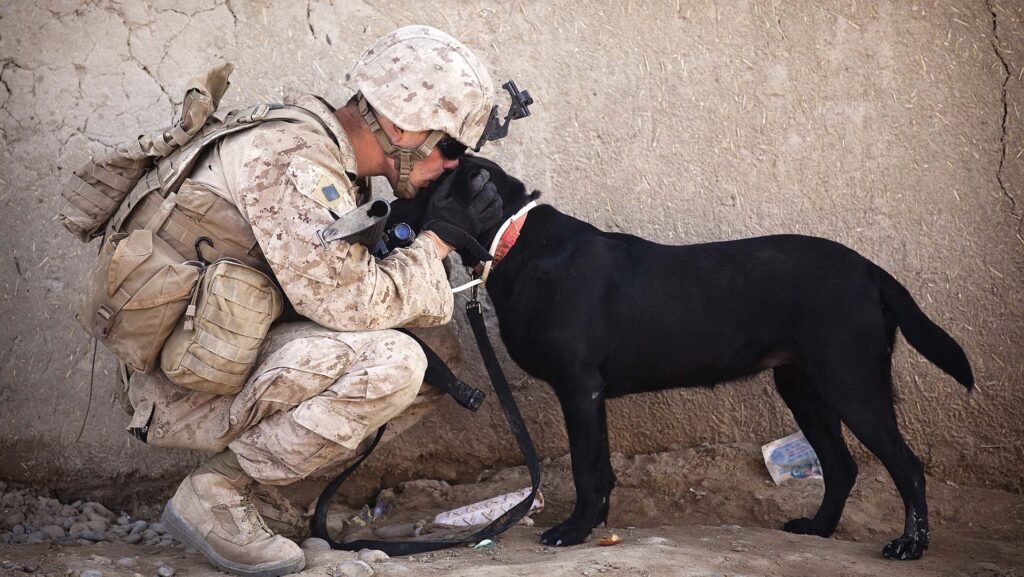Dogs have been known to help people with various emotional and mental issues, such as Post-Traumatic Stress Disorder (PTSD), anxiety, and depression. One study found that dogs can be effective in reducing stress levels in their owners. Owning a dog has also been shown to increase levels of physical activity, which can also improve mental health. Dogs provide social support, which is beneficial for people who are socially isolated. They can also help reduce loneliness and isolation.

If you’re like many people, you may have heard that dogs can help people with PTSD. But what do the studies say? In this article, we’ll explore the evidence behind claims that dogs can be a helpful therapy for those living with PTSD.
What Is PTSD?
Posttraumatic stress disorder (PTSD) is a mental health condition that can occur after you have been through a traumatic event. PTSD is an anxiety disorder that can develop after someone has experienced or witnessed a life-threatening event. Symptoms may include flashbacks, intrusive thoughts, nightmares, and severe anxiety. PTSD can make it difficult to function normally in daily life.
PTSD can make it difficult to function in everyday life and can lead to self-harm or suicidal thoughts. While there is no one-size-fits-all treatment for PTSD, therapies such as cognitive behavioral therapy (CBT) and exposure therapy have been shown to be effective in many cases.
How Do Dogs Help People With PTSD?
Dogs can help people with PTSD in a few ways. They can provide comfort and companionship, which can reduce stress and improve moods. Dogs can also provide a sense of security by acting as a focus for attention and providing physical support. Additionally, dogs can help people become more active and social, which are both important for recovery from PTSD.

Dogs have been used as service animals for people with PTSD for many years. Dogs help people by providing comfort and support, and by reminding them to take their medication or go to therapy appointments. In addition, dogs can provide a sense of safety and security, which is important for people with PTSD.
Dogs Provide Comfort:
Dogs provide a sense of comfort to those who suffer from PTSD. This is because dogs are loyal and nonjudgmental, which allows those with PTSD to feel safe and comfortable around them.

A new study has found that dogs provide comfort for people with PTSD. Researchers found that dogs provided a sense of calm and security for their owners, which helped to reduce stress levels. The study also found that dogs can be an effective tool for helping people with PTSD to manage their condition.
Dogs Help Reduce Stress:
Dogs have been shown to help reduce stress levels in those with PTSD. This is likely due to the fact that dogs provide a sense of companionship and reduce feelings of isolation. Since ancient times, dogs have been known to be loyal and helpful companions. Recent studies have shown that dogs can also help reduce stress levels for people with post-traumatic stress disorder (PTSD).

One study found that the presence of a dog helped reduce cortisol levels (a hormone associated with stress) in people with PTSD. Additionally, dog owners with PTSD reported feeling less stressed and more relaxed when their dogs were present. These findings suggest that dogs may be helpful in reducing the symptoms of PTSD.
Dogs Can Increase Socialization:
Dogs can provide a sense of companionship and socialization for people diagnosed with PTSD. Owning a dog can help those affected by PTSD to cope with their symptoms, as well as providing positive distractions from traumatic memories. Dogs can also help increase socialization for those with PTSD. This is because dogs encourage people to go outside and interact with other people, which can help reduce feelings of isolation.

Dogs offer a sense of security, stability and routine which is often lacking in the lives of people with PTSD. In addition, dogs can provide support during times of anxiety or panic. Furthermore, dog ownership has been shown to increase socialization and overall physical activity levels for people with PTSD.
Dogs Can Improve Mental Health:
Post-traumatic stress disorder is a mental health condition that can develop after someone experiences a traumatic event. Symptoms of PTSD can include flashbacks, nightmares, intrusive thoughts, and avoidance of reminders of the traumatic event. Dogs can help improve mental health for people with PTSD by providing companionship, reducing anxiety, and helping to increase socialization. Dogs can also provide a sense of safety and security, which can be beneficial for people with PTSD.

The Benefits Of Dogs:
PTSD, or Post-Traumatic Stress Disorder, is a mental health condition that can develop after exposure to a traumatic event. Symptoms can include flashbacks, nightmares, severe anxiety, and depression. People with PTSD often have difficulty coping with daily life.
There is growing evidence that dogs can help people with PTSD manage their symptoms. Dogs provide a sense of companionship and support, and can help reduce stress and anxiety. They also provide a sense of security and purpose. In addition, dogs can help people get exercise and socialize with others.

Research has shown that dogs are especially beneficial for children with PTSD. Dogs can help these children feel safe and secure, and can provide them with emotional support. Dogs can also help children learn how to trust again and improve their social skills.
In Conclusion,
Dogs have been known as man’s best friend for centuries. They are loyal and always happy to see their owners, no matter what. It seems that dogs can also be great for those struggling with mental health issues. A recent study found that dog ownership was associated with significantly lower levels of psychiatric symptoms and less use of psychiatric medications. Owning a dog can provide a sense of purpose, companionship, and security that can be very beneficial for those struggling with mental health issues.



















